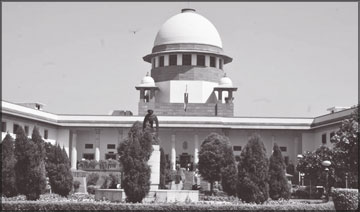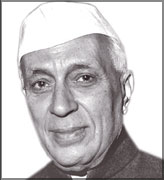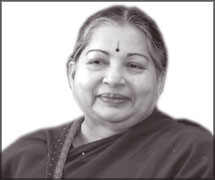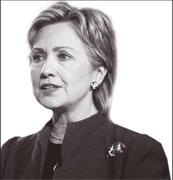TNA will not find solutions in India
Dr Kamal Wickremasinghe
  The views expressed by the TNA ‘leadership’, so far, regarding the
planned Northern Provincial Council elections demonstrate a lack of
commitment to seeking reasonable solutions to any real or perceived
problems faced by the Tamil people. The TNA’s lack of good faith in
negotiations on any ‘federal’ solution not involving an Eelam of their
design demonstrates a lack of commitment to the essence of federalism -
compromise. The views expressed by the TNA ‘leadership’, so far, regarding the
planned Northern Provincial Council elections demonstrate a lack of
commitment to seeking reasonable solutions to any real or perceived
problems faced by the Tamil people. The TNA’s lack of good faith in
negotiations on any ‘federal’ solution not involving an Eelam of their
design demonstrates a lack of commitment to the essence of federalism -
compromise.
The English word ‘federalism’ originates from the Latin word ‘foedus’,
meaning ‘covenant’; The covenant referred to is the governing structure
of the early Christian Church devised by the Apostles and elders,
representing the universal and the local churches respectively.
The covenant of the early Christian church was founded on the
agreement that small local churches would fit in to a broader structure
of the ‘universal’ church operating to serve the common interests,
essentially of spreading the ‘good word’. The process that led to
agreement involved negotiation and compromise.
Later, countries in Europe adopted federalism as their preferred
system of governance - currently European countries with federal
constitutions include Austria, Belgium, Germany, Switzerland,
Bosnia-Herzegovina and Russia. Spain that incorporates many attributes
of a federal system does not define itself as federal. Outside Europe,
the US, Canada and Australia have well-known federal systems of
government.
|

Supreme Court of India |
Of course, the federal model of government had previously existed in
many parts of the world, including in India, in the form of 16
Mahajanapadas (600-321 BC) mentioned in the Buddhist texts, that later
evolved from tribally-based identities to territorial ones, to janapadas,
and states that represented the tribes, and finally to monarchy.
The TNA’s trip to India to complain about the government standing in
the way of getting the Eelam shows an apparent lack of awareness about
the key features of India’s current Federal system and India’s struggle
over the last 66 years to maintain national integrity in the face of
separatist demands similar to the TNA’s by diverse regional groups.
India knows the disruptive influence of Tamil and other forms of
separatism
The TNA needs to note that the modern India envisioned by the Indian
National Congress (INC) and Shri Jawaharlal Nehru is not made up of
territories ear marked for ethnic groups due to, the need to foster
national unity, and like the Sri Lankan Tamils, most ethnic minorities
live across India.
The TNA would be well aware that the attempts by Tamil extremists in
Tamil Nadu to press secessionist claims along linguistic lines are
treated with contempt by the rest of India including the Central
government, due mainly to the threat it poses to the Indian Union, as
well as the fact that many Tamils live outside Tamil Nadu.
Jawaharlal Nehru made his views on separatism clear when he said in a
1953 speech - “… unfortunately, there are inherent in India, separatist
and disruptive tendencies which made India suffer in the past. In
preserving its unity, India needs to fight communalism, provincialism,
separatism, statism and casteism.”
Nehru’s words in 1953 refer to the Indian counterparts of the sort of
battle the TNA is waging against the enlightened Tamils and the broader
Sri Lankan polity in 2013, without learning lessons from the unwarranted
bloodshed over the last 30 years.

Jawaharlal Nehru |

J Jayalalithaa |

Hillary Clinton |
The reasons outlines by Nehru in 1953 are valid for the 2013 Sri
Lanka - demands for minority rights based on ethnic identity threaten
the sovereignty of Sri Lanka. The other major reason against separate
enclaves is the fact that many ethnic Tamils as well as Tamil speaking
Muslims and Moors live predominantly in areas outside the Jaffna
peninsula, Colombo being the prime example.
The TNA leadership, preoccupied with political expediency, do not
seem to care about the future status of Tamils outside Elam, in the
unlikely event such an entity is established.
Nehru’s concerns were founded on the universal experience in
developing countries that the acute sense of loyalties to ethnic and
regional identity, nurtured by the system, invariably manifests itself
as antagonism towards the nation.
Economic ‘problems’ resulting from the overall poverty of the nation
are easily attributed to ‘deprivation’ by the centre through long-term
neglect in development, and unfair redistribution of resources. Such
warped reasoning gives rise to challenges to the legitimacy of the
state, and national unity and integrity.
Nehru’s deep feelings against such disruptive national ‘weaknesses’
are reflected in the constitutional safeguards in India’s federal
structure in the form of ‘unequal’ distribution of powers between the
Centre and the states, with only a set of specified legislative and
administrative powers devolved to the states. Most importantly, the
Central government of India retains all “residual powers”.
In addition, the Indian Constitution has been made easily amendable
as an added insurance against the contagion of problems in States to the
country as a whole.
The Indian federalism is designed to nurse the raw wounds of
colonialism
The Indian emphasis on unity of the post-independence India emanated
from the independence fighters’ memories of the battles they fought
against the British colonial division of India in to directly-ruled
provinces and some 560 ‘indirectly-ruled’ autocratic princely kingdoms
incorporating religions, tribes, and languages, that added complexity to
regionalism in India.
India’s unique mode of federalism built around a strong Central
government, along the lines of the unified Indian kingdom of King Ashoka,
was the INC’s defence against future colonial subjugation of India
through the exploitation of its disunity and the absence of
nationalistic spirit.
The limitations on state powers arising from the progressive social
outlook of the INC and the need to maintain national integrity following
the trauma of partition make Indian federalism distinct from the
established models in countries such as the US, Switzerland and
Australia.
In India, the Parliament has the powers to alter the boundaries of a
state without the consent of the state; Since 1956, the State
Restructuring Commission has redesigned the nation into 28 States and 7
Union Territories. The states do not have the right to secede; and there
is no division of public services.
Federalism in India contrasts with Australia for example, where the
six colonies that joined together to form a Federation in 1901 “ceded”
some of their powers, specified in section 51 of the constitution, to
the new Commonwealth Parliament. The Commonwealth’s legislative power is
limited to the areas specified in section 51, and all other "residual
powers" remain in the states’ domain.
India’s model of a ‘unitary state with federal principles’ rather
than a ‘federation with a weak Central government’ has been legally
challenged by the states, as to be expected - the first significant
legal challenge was posed by the State of West Bengal when the Union
proposed to acquire some coal bearing areas in the State under the Coal
Bearing Areas Acquisition and Development Act (1957). The state
contended that the Act did not apply to lands vested in the state and
that the Act was beyond the legislative competence of Parliament.
The Indian Supreme Court ruled that - “The Constitution of India is
not truly Federal in character. The basis of distribution of powers
between the Union and States is that only those powers which are
concerned with the regulation of local problems are vested in the States
and the residue specially those which tend to maintain the economic
industrial and commercial unity of the country are left to the Union. It
is not correct to say that fall sovereignty is vested in the States
(State of West Bengal v. Union of India, 1962).”
In a more recent case, Pradeep Jain v. Union of India (1984),
involving a complaint against the states’ denial of admission to medical
courses for students not ‘domiciled’ in the state, the Supreme Court of
India held (per Bhagwati, P. N. and Ranganath Misra, JJ.) that - “The
entire country is taken as one nation with one citizenship and every
effort of the Constitution makers is directed towards emphasizing,
maintaining and preserving the unity and integrity of the nation. …and
every citizen has a right to move freely throughout the territory of
India and to reside and settle in any part of India, irrespective of the
place where he is born or the language which he speaks or the religion
which he professes and he is guaranteed freedom of trade, commerce and
intercourse throughout the territory of India …”
Since the promulgation of the Union, the lists of powers specified in
the constitution under the “Union” and “Concurrent” lists have increased
and the “State” list reduced. The Central Parliament also has the powers
to legislate in subject areas identified in the State list, if required
to safeguard national interest, subject to a two thirds majority in
Parliament.
Other extraordinary powers of the Central government specified in the
Constitution includes Article 356 which empowers the President to
enforce Central government administration when a particular state
government is deemed to be unable to carry out is functions in
accordance with the provisions of the constitution. The INC government
of Jawaharlal Nehru invoked this provision early, in 1951, by dissolving
the assembly of the Punjab.
Though the Indian constitution assigns ‘Public Order’ and ‘Police’
powers to states, it grants the Central government the powers to extend
the jurisdiction of the members of the Police Force of one state to
another, with the consent of the latter state. The State Police power is
also curtailed by the Central government powers to deploy, the Armed
Forces or ‘any other force’ in any state for the purposes of maintaining
public order.
In addition, the Central government has the powers to deploy the
Central Bureau of Investigation officers with Police powers against
specified offences under its full administrative control and direction,
and Central Bureau of Intelligence officers who have no Police powers
but powers of collection and analysis of intelligence relating to
national security.
India still experiences problems
The Indian federal structure that incorporates the right vision in
relation to maintaining national unity and recognition of ethnic
diversity, moderated by strict constitutional safeguards against
regionalism, has not managed to keep separatist tendencies away - it
seems the creation of multiple power centres in any nation nurtures
conflict.
Apart from the chronic Tamil extremism in the South, separatist
demands in the Northeast region of India (comprising Assam, Nagaland,
Manipur, Arunachal Pradesh, Mizoram, Tripura and Sikkim) continue to
pose a grave threat to India’s territorial integrity.
The region’s nearly 40 million inhabitants showing racial,
linguistic, religious diversity, surrounded by Bhutan, Myanmar,
Bangladesh and China, and connected to the Indian mainland only by a
small corridor of land referred to as the 'chicken's neck’ have started
a multitude of separatist movements that seem to engage in
inter-community, communal and inter-ethnic conflicts, citing natural
resources, migration, displacement, social exclusion as related causes.
The politics of identity lie at the heart of the conflict.
The problems afflicting Indian federalism are essentially sourced
from the relative political weakening of the Central government that
began in the late 1980s, through compulsion to form coalitions with
regional parties. Currently, the national parties INC and the BJP are
unable to form governments in their own right, making regional and small
local parties based on ethnic identity the ‘king makers’.
The bargaining process involved has enabled these groups to pursue
ethnic and regional agenda’s, bypassing all the constitutional
safeguards, and contrary to the original vision of national unity.
Added to this is the effects of international influence under the
guise of globalisation, that has enabled states like Tamil Nadu
developing foreign relations independent of the Centre - Jayalalithaa is
a ‘close friend’ of Hillary Clinton!
States of the Indian Union presently exercise a greater measure of
autonomy than is allowed to them on the basis of the division of powers
originally provided in the Constitution. The Rajiv Gandhi government’s
attempted solution to the problem, the village level ‘Panchayati Raj’
system, introduced in 1993, has been rated by an Expert Review Committee
as an initiative of which “outcomes have nowhere near matched outlays”.
We can learn from the Indian experience
Sri Lankans need to take a step back from considering federalism as
the panacea for any ethnic issues the country is facing. Federalism in
its pure form, or in the diluted form as practiced in India, does not
have the capacity to accommodate ethnic diversity in Sri Lanka while
maintaining national unity, due to the dispersal of ethnic groups
throughout the island. The creation of dedicated regions for particular
minorities will attract resentment of the majority, as well as other
oppressed groups like the so-called lower-caste Tamils.
The academic argument that federalism helps to secure democracy and
human rights is founded on the uncritical adoption of roots in the
contemporary ‘public choice theory’ ideology. The ‘theory’ propounds
that “voters, politicians, and government officials all are agents who
interact in the social system on the basis of self-interest”.
Proponents of federalism further argue that smaller political units
afford better opportunities to individuals to participate in
decision-making, than a monolithic unitary system of government.
Interestingly, the theory provides that individuals (meaning regions,
states and other devolved units) dissatisfied with conditions in the
state have the option of ‘leaving’.
Like with all Western ‘Trojan horse’ ideologies devised for the
consumption of developing country intellectuals, such theories have
taken root in Sri Lanka despite the fundamental incompatibility of the
belief that the behaviour of ‘all’ people is ‘always’ governed by
self-interest, including in social systems founded on eastern
philosophies such as Buddhism, Hinduism, Confucianism, and Christianity.
The theory may hold true with people like the Bush family in America,
Dick Cheney and Barack Obama, but certainly not universally in more
civilised societies.
The imperative for Sri Lanka is to adopt institutional principles of
national governance that helps nurture the thought of all citizens
identifying with the nation, with commitment; Recognising ethnic
diversity adequately, without making it the be-all and end-all, is part
of creating the sentiment of belonging to the larger polity: the level
of recognition of ethnicity in the constitution, and through state
symbols institutional principles needs to be made contingent on the
historical experience of ‘politicising’ ethnicity in the Sri Lankan
context.
Recognition of ethnic diversity unduly, as the defining factor
between citizens, elevates ethnic identities to political identities, a
process that will devour national identity. Due to this reason, federal
designs based on ethnicity as the basis of existence, similar to the
model imposed by the West on the basket case of Ethiopia, are not
suitable for Sri Lanka.
The TNA’s Indian visit certainly will not yield results favourable
for their divisive agenda and they need to understand that their desire
to lead an Elam government could easily give rise to another cycle of
violence.
Not implementing S13 will not give rise to the same result!
|





